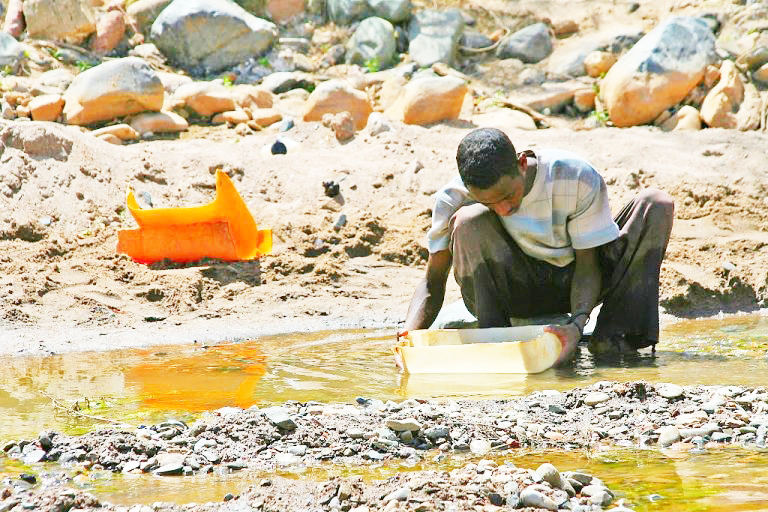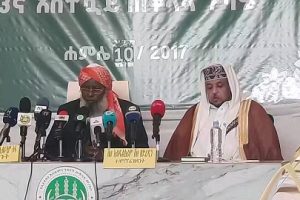
Ethiopia is blessed with natural resources. It has several minerals that could transform the economy, if harnessed properly. However, there are constraints in utilizing the huge potential the nation is endowed with.
Having understood the aspirations and challenges of the sector, the Ministry of Mines and Petroleum has been striving to take the mining investment sector to a higher level, according to Geremew Regassa, Mines, Petroleum and Natural Gas Planning, Supervision and Evaluation Director at the Ministry.
The director adds that the country has designed a Mining Development Roadmap to utilize its enormous mineral reserves.
“The roadmap will magnetize investors and help accumulate capital. It also creates a means of utilizing the sector with small asset,’’ he noted and added: ‘‘over the last five months, 106 reconnaissance and 110 extraction licenses were given. Necessary support will be rendered to local and foreign companies that will engage in the sector,’’ he reaffirms.
Gold, sapphire, natural gas, potash, tantalum, nickel, cooper, limestone, gypsum, opal, oil shale, oil and gas etc. are abundant in Ethiopia, though the country has not yet benefited from its massive resources.
Geremew states that as part of incentivizing investors, those who engaged in the sector have been encouraged and tantalum and potash mining is well underway to maximize nation’s foreign currency earnings.
Ethiopia has planned to extract huge amount of potash and this would put the nation among the major potash producing countries in the world, as to him.
The Ethiopian government has introduced home-grown economic reform in 2019 so as to address the macro-economic disparity which has been harming the nation for decades.
Enhancing the mining sector through designing feasible policy is already included in the new economic reform.
The director underlines that Ethiopia has envisioned a plan of reaching middle income nation by 2025 and the mining sector would play a pivotal role in maximizing foreign currency earnings.Gold mine has been practiced in different parts of Ethiopia through traditional and modern mechanism for decades and states like Tigray has been contributing their due share.
This fiscal year, gold which was collected from North Western Zone of Tigray and supplied to the National Bank has increased by fourfold, Kalau Berhane, Mines and Energy Head of the Zone disclosed.
‘‘Gold is being extracted in a traditional way in our zone and we have supplied five quintal gold to the National Bank this year. This is a huge increment compared to last year’s one quintal supply. The supply amounts more than one billion Birr as per the current gold price,’’ he adds.
According to him, government’s incentives and firms’ controlling system have boosted gold supply.
‘‘Strict controlling mechanism in illegal mining and contraband is ascribable to the increment. Not only this, National Bank’s decision of increasing 20 percent price in gold supply has played a great role for miners to benefit from their produce. The reform guideline that allows producers to supply even below 150 gram gold is also another attributable factor for the increment,’’ as to him.
In the zone, there are 156 gold mining associations which are working in five districts and 2,856 citizens lead their livelihood engaged in the sector.
Besides, the new mining policy would increase the mining sector’s contribution to GDP by10 percent by 2030 from the current 3 percent, according to the Ministry.
To sum up, government, miners and other stakeholders should work in concert to enhance the mining sector so as to contribute for economic growth. They should endeavor for policy implementation and combating illegal mining activities as well.
The Ethiopian Herald July 26, 2020
BY TSEGAY HAGOS





